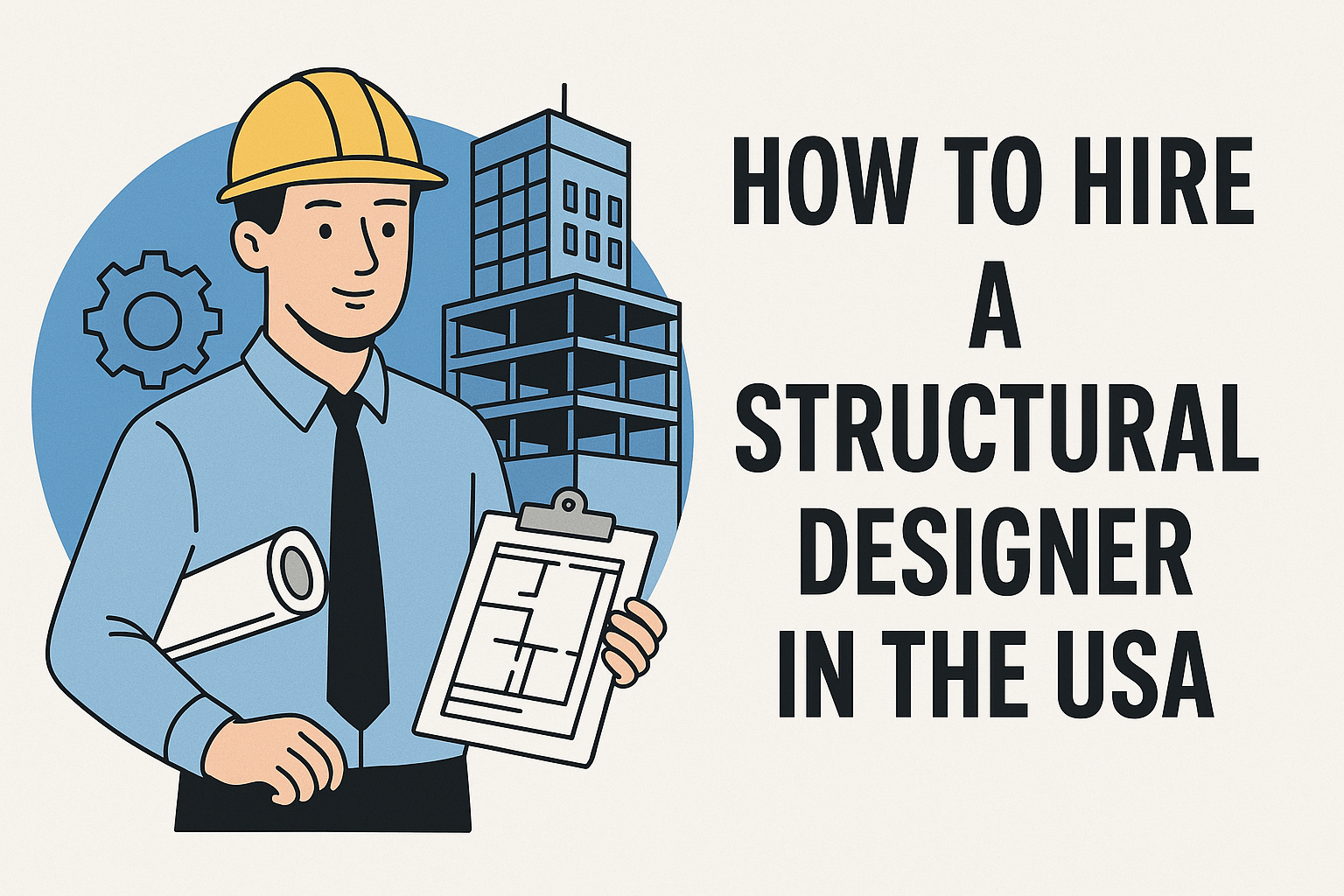Finding the right structural designer can make or break your project’s safety, budget, and timeline. This guide walks you through each step—from defining needs to sealing the deal—so you hire with confidence.
Structural Engineer Holds a PE license Legally responsible for design approvals, final calculations, compliance with codes.
Define Your Project Scope
- Structure type: residential, commercial, industrial, bridge, etc.
- Services needed: load analysis, material selection, seismic or wind design.
- Site constraints: soil reports, flood zones, local code nuances.
Clarify your deliverables and budget range before you start outreach.
Where to Find Qualified Candidates
- Engineering Associations
- American Society of Civil Engineers (ASCE)
- National Council of Examiners for Engineering and Surveying (NCEES)
- Online Platforms
- LinkedIn ProFinder, Upwork, Thumbtack
- Specialty sites like StructuralEngineering.com
- Local Firms
- Google “Structural Engineering firms near [your city, state]”
- Check reviews, licensure, and recent project photos
Vet Credentials and Past Work
- License verification
- Search your state’s PE registry via NCEES
- Portfolio review
- Look for similar-scale projects and complexity
- Client references
- Ask about communication, timeliness, problem solving
- Insurance and bonding
- Professional liability and general liability coverage
Interview and Collaboration Fit
Key questions to ask:
- Which building codes do you specialize in?
- How do you handle mid-project design changes?
- What software suite do you use (e.g., ETABS, STAAD.Pro, Revit)?
- How will you coordinate with architects, MEP engineers, and contractors?
Assess responsiveness, clarity, and willingness to explain technical details.
Understand Pricing Models
- Hourly rate ($75–$150/hr typical)
- Fixed fee per drawing set or project phase
- Percentage of construction cost (rare for small projects)
Tip: Obtain at least three bids and compare scope, not just price.
Finalize the Contract
Ensure the agreement covers:
- Scope of work and deliverables
- Schedule with milestone dates
- Revision limits and fees for extra changes
- Liability clauses, insurance, and indemnification
- Permit-support services, if required
Review with your legal advisor before signing.
Next Steps and Bonus Resources
Once you’ve onboarded your structural designer:
- Schedule a kick-off meeting to align on timelines and responsibilities.
- Share site reports, architectural drawings, and material specs.
- Set up a shared project folder (e.g., Dropbox, Google Drive) for version control.
Beyond Hiring: What’s Next?
- Integrating BIM workflows for better clash detection
- Leveraging cloud-based analysis tools for real-time collaboration
- Exploring sustainable materials and value-engineering options
FAQs
A designer may assist in drawings and early concepts, but only a licensed structural engineer can legally approve designs and take liability for structural integrity.
Rates typically range from $75–$150 per hour, but can vary based on experience, state, and project complexity.
Read Also-
International Building Code 2018 Version
International Building Code 2021 Version
Top 10 Civil Engineering Colleges in the USA – 2025
Top 10 Civil Engineering Colleges in the USA – 2025
